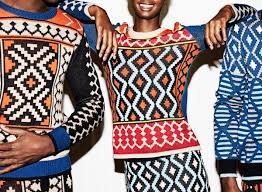As emerging designers improve by fusing their African roots with current styles, some South African sustainable fashion brands has won praise from all around the world. These Native designers who so effortlessly advance the boundaries of African fashion require a lot more credit.
They engage in worldwide competition, draw inspiration from African culture and its ideals to shape an expression, and blend our traditions and heritage into their work.
Here are 8 South African sustainable fashion labels that you need to be aware of to celebrate how far South African designers have come in promoting sustainable transformation in the global fashion industry.
Related post: The Versatility of Senegalese Fashion
1. Çoise
This South African eco-friendly clothing brand strives to provide timeless, high-quality clothing that can be worn all year round. Çoise also offers a basic modifications service to make sure you have the perfect fit. These expertly made swing tags are made from herb seeds, allowing you to plant them in your yard and bring a little bit of greenery into your life.
2. Selfi

Celeste Arendse is the artist behind Selfi. After working as a manager for renowned South African fashion label Kluk CGDT, Celeste, a fashion design graduate from Cape Town, debuted her first womenswear collection in 2010.
Selfi examines the “multidimensional dimensions of the self” through its selections of ready-to-wear for both men and women.
The brand places a focus on deconstructed designs, simple, wearable tailoring, and bespoke patterns in their assortment of seductive clothing. Selfi has been in shows at Pure London, New York Fashion Week, and Mercedes-Benz Fashion Week in Cape Town and Johannesburg since its introduction.
3. Lukhanyo Mdingi
The same-named sustainable fashion business in South Africa is led by Lukahnyo Mdingi, and it is well known for its exquisite attention to detail and morally sound manufacturing procedures.
Mdingi creates his trans-seasonal garments primarily out of natural materials found in South Africa, such as wool, silk, and mohair. Natural textiles’ unfinished roughness and Lukhanyo Mdingi’s deep, earthy color palette give his garments an extravagant impression.
4. TriCitie
TriCitie, a family-run clothing company, aims to provide inclusive, impact-free clothes. To carry on the sewing and stitching traditions that their great-grandmother had passed down to them, Danielle Jeneira and Bevan Moses, a sister and brother design duo, launched TriCitie.
Their distinctive line of elevated basics is made with an eye toward social and environmental responsibility utilizing low-impact materials and low-waste design methods.
The company has a rich history and was created with elegance, comfort, and durability in mind. TriCitie decides to defy fashion trends by gradually adding to its ongoing collection rather than introducing a completely new line every season.
5. Anmari Honiball
The word “playful” sums up Anmari Honiball’s style the best. Honiball mixes patchwork, zero-waste design, and upcycling to create statement classics with distinctive embellishments with an emphasis on comfort and versatility. With the help of her seamstress, Ilona, she crafts each item in her Johannesburg studio.
6. Sindiso Khumalo
Producing sustainable clothing with an African historical impact is the aim of Sindiso Khumalo’s well-known sustainable fashion brand, which she launched in 2015.
Khumalo is a Cape Town-based social activist and manufacturer of environmentally friendly clothing. To create one-of-a-kind handwoven and hand-embroidered textiles for her collections, with textiles and craft at the core of each, she works directly with NGOs and small workshops in South Africa and Burkina Faso.
What makes Khumalo’s wonderfully created garments so well-known are the hand-drawn and painted motifs that she herself designs.
7. Sama Sama
Kimberly Lardner-Burke established the company Sama Sama in 2020 with the goal of offering clothing and mindful accessories that promote body love and unrestricted movement.
This South African sustainable fashion brand is motivated by ethics and sustainability. It employs only natural fibers and works with local fabric suppliers and production companies that prioritize fair wage standards.
Sama Sama’s transparency regarding its dedication to sustainability and ongoing attempts to build a business that is sensitive of both people and the environment is reassuring.
8. Fuata Moyo
The Mbiola siblings, Kabambi, Martine, Tshimaro, and Lucy, established and are in operation of this company based on the literal meaning of the Swahili proverb, “Fuata Moyo,” which translates to “follow your heart.”
This family-run business applies slow fashion to everything it does, including repurposing and upcycling clothing, adorning it with hand-painted artwork, and creating new outfits with taste and careful tailoring.
As part of a customizing option, you might even get artwork painted on one of your garments to add some extra flair.

